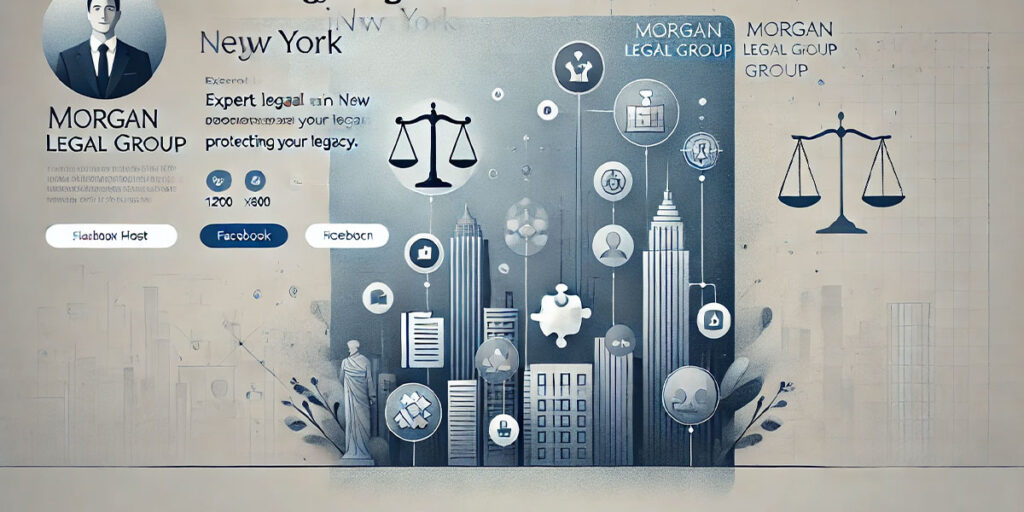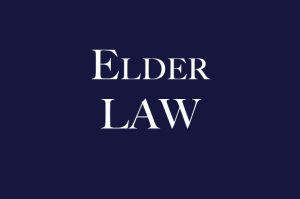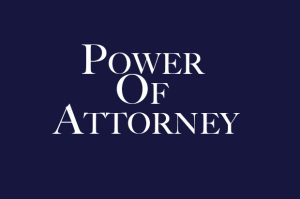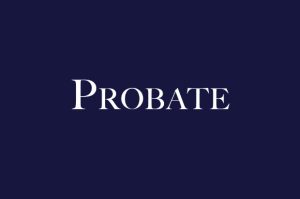Navigating Probate in New York: Do You Need an Attorney When a Will Exists?
Often, when a loved one passes away, the presence of a valid will can bring a sense of relief. However, many people mistakenly believe that having a will eliminates the need for legal assistance in the probate process. Indeed, probate in New York can be complicated and requires a thorough understanding of specific legal procedures. Therefore, even with a clear will, engaging a probate attorney like those at Morgan Legal Group is often the wisest course of action to ensure a smooth and efficient estate administration.
Understanding the Probate Process in New York
Before we delve into the specifics, it’s crucial to understand what probate entails in New York. Probate is the court-supervised legal process of validating a will and managing the distribution of a deceased person’s assets, as stated in the will. Specifically, this includes tasks such as inventorying assets, paying debts and taxes, and transferring property to the beneficiaries. Therefore, the executor named in the will shoulders the legal responsibility for managing this intricate process.
- Filing the Will: First, the original will must be filed with the Surrogate’s Court in the county where the deceased resided.
- Appointing the Executor: Next, the court must formally appoint the executor, authorizing them to administer the estate.
- Inventory of Assets: After that, a detailed inventory of all assets of the estate must be compiled.
- Payment of Debts and Taxes: Subsequently, all valid debts and taxes owed by the estate must be paid, following New York law.
- Distribution of Assets: Finally, after all the proper steps, the remaining assets are distributed to the beneficiaries according to the will.
Why a Will Doesn’t Simplify Everything
Certainly, while a will provides clear direction for asset distribution, it does not circumvent the probate process in New York. In fact, the court’s validation and oversight are mandatory to ensure that all legal requirements are met and that the distribution of assets is legal. Therefore, even the clearest and simplest will require probate to be officially recognized. For instance, there can be challenges such as:
- Potential Will Contests: Indeed, even when there is a will, disputes may arise among family members, leading to will contests.
- Complex Assets: Furthermore, the estate may include complex assets such as real estate, business interests, and significant investments that require expert handling, especially in New York.
- Executor’s Responsibilities: Additionally, the executor may have little or no experience managing such a complex legal process, so a probate attorney can help them, especially in compliance with New York state regulations.
The Crucial Role of a Probate Attorney
Therefore, a probate attorney’s expertise in New York law becomes invaluable, even when a will is available. Specifically, these attorneys navigate the intricacies of the probate process, handle all court filings, and ensure compliance with New York’s Surrogate Court procedures. Because of this, they provide essential support to executors, often preventing costly errors and delays. Moreover, they can offer the following services:
- Legal Guidance: First and foremost, probate attorneys provide clear guidance on the legal requirements of New York law.
- Court Filings: They prepare and submit all necessary legal documents to the Surrogate’s Court.
- Asset Management: Furthermore, they assist the executor with the proper management and valuation of the estate’s assets, according to New York guidelines.
- Creditor Claims: In addition, they handle the legal process of addressing any claims against the estate in a timely fashion.
- Tax Issues: Moreover, they manage estate tax filings and identify tax planning opportunities unique to New York, which is often very complex.
- Conflict Resolution: If required, they represent the executor in any disputes that may arise among beneficiaries.
Specific Challenges Without a Probate Attorney
Without a probate attorney, executors often face many challenges and potential risks. Specifically, New York’s probate laws’ complexities can be overwhelming and lead to unintentional errors that may result in additional delays, penalties, or costly legal disputes. For example, executors can find themselves in a situation where:
- Missing Deadlines: To begin with, they may miss critical deadlines for filing court documents, leading to further complications.
- Incorrect Valuations: Additionally, they may not accurately value assets, leading to improper tax filings or incorrect distribution of assets under New York law.
- Liability Issues: Moreover, they can be held personally liable for errors made in administering the estate.
- Legal Challenges: Similarly, they may struggle to resolve legal issues independently when family disputes arise.
Complexities of Estate Assets in New York
When it comes to estate assets, the probate process can become even more intricate, particularly in New York City. For instance, real estate holdings, investments, and business ownership involve unique considerations within New York’s legal framework. Therefore, professional advice from a probate attorney is crucial.
- Real Estate: In particular, transferring real estate in New York involves specific legal procedures and may require specialized valuation and legal filings.
- Business Interests: Furthermore, if the deceased owned a business, navigating its transfer or sale within the probate process in New York often requires specific expertise.
- Investments: Additionally, managing a varied portfolio of investments requires an understanding of New York’s tax laws and proper procedures.
Navigating Will Contests in New York
Furthermore, even with a will in place, disputes can and do arise, leading to a will contest, and require legal intervention by an attorney familiar with New York’s court system. Specifically, a will can be contested if someone believes the deceased lacked the mental capacity to make the will, was unduly influenced, or the will does not meet the legal formal requirements of the state. In that case, a probate attorney can:
- Represent the Executor: To begin, defend the will’s validity and the executor’s actions.
- Negotiate Settlements: Often, a will contest can be resolved with negotiation and settlement to avoid a lengthy court battle.
- Litigation: However, if a settlement cannot be reached, your lawyer will argue your case before the courts in New York.
Tax Implications in New York Probate
Indeed, tax issues form another critical component of the probate process, particularly in New York, which has its own estate tax laws separate from federal laws. Specifically, failing to address these issues correctly can lead to significant penalties and financial losses for the estate and its beneficiaries. Therefore, a probate attorney can help ensure proper compliance and potentially minimize tax liability.
- Estate Tax Returns: Specifically, probate attorneys can prepare and file all required federal and New York State estate tax returns.
- Tax Planning: Also, probate attorneys can identify and utilize available strategies to minimize taxes within the framework of New York law.
- Tax Audits: Additionally, a probate attorney can represent the estate during a tax audit by federal or New York tax authorities.
Dealing with Creditor Claims in New York Probate
Another critical aspect of the probate process involves dealing with creditor claims, where individuals or entities claim the estate owes them money. In New York, these claims must be managed properly and follow specific timelines and legal protocols. Therefore, a probate attorney can assist an executor with:
- Identifying Valid Claims: Firstly, a probate attorney ensures all claims against the estate are valid under New York law.
- Paying Legitimate Debts: Secondly, the attorney can ensure legitimate debts are paid following priority of payment guidelines in New York.
- Negotiating with Creditors: Also, an attorney can negotiate the settlement of debts to minimize financial burdens on the estate.
When is a Probate Attorney Essential?
While the specifics of each case vary, certain circumstances make the assistance of a probate attorney not only recommended but essential. For instance, consider hiring an attorney if:
- Complex Assets: Firstly, the estate includes significant assets, such as real estate, business interests, or extensive investment portfolios.
- Will Contests: Secondly, there is any potential for a will contest or family disputes regarding inheritance.
- Tax Issues: Thirdly, the estate has complex tax implications or a large value, which could lead to high tax burdens.
- Out-of-State Executors: Finally, the executor is not familiar with New York’s legal procedures or resides outside of New York.
The Benefits of Proactive Legal Guidance
Beyond handling the probate process, a probate attorney offers invaluable benefits during what can be a difficult time. Primarily, attorneys at Morgan Legal Group strive to make the probate experience as smooth and stress-free as possible for their clients, acting compassionately. Consequently, they ensure that the executor and beneficiaries are informed throughout the entire process. Furthermore, an attorney helps you to:
- Reduce Stress: For instance, navigating the probate process with a lawyer alleviates the burden on the executor.
- Prevent Costly Mistakes: Specifically, an experienced attorney prevents mistakes that could result in fees, delays, and additional legal costs.
- Ensure Compliance: Moreover, an attorney ensures adherence to New York laws and court procedures to avoid legal challenges.
- Efficient Resolution: Lastly, an attorney will work to expedite the estate administration, to minimize delays.
Choosing the Right Probate Attorney in NYC
Choosing the right probate attorney can significantly impact the outcome of your estate administration. Therefore, consider these factors when selecting an attorney for a probate in New York:
- Experience: First and foremost, look for an attorney with significant experience handling probate cases in New York.
- Expertise: In particular, ensure the attorney has a strong understanding of New York estate law and tax regulations.
- Reputation: Also, check for client testimonials and the attorney’s reputation in the legal community.
- Communication: Importantly, choose an attorney who communicates clearly and responds promptly to questions and concerns.
Why Morgan Legal Group Stands Out
At Morgan Legal Group, we are dedicated to providing compassionate, comprehensive, and effective legal services for all of our New York clients. Moreover, our team of experienced probate attorneys are well-versed in New York’s complexities, and they can provide you with the support that you need. In summary, when you work with us, you receive:
- Local Expertise: Firstly, we have an extensive understanding of the local laws and Surrogate Courts in New York City.
- Personalized Attention: Also tailor our services to your specific needs.
- Proven Track Record: We have a history of successful probate administration in New York.
- Client-Focused Approach: Furthermore, we are dedicated to making the probate experience as stress-free as possible.
Conclusion: The Value of a Probate Attorney in New York
In conclusion, while having a will is crucial in estate planning, it is also true that it does not eliminate the complexities of the probate process. Therefore, even with a seemingly clear will, the guidance of an experienced probate attorney can be invaluable to ensure a smooth, compliant, and efficient administration of your estate in New York. Thus, engaging an attorney helps to protect the executor and the beneficiaries from various challenges, disputes, and unintended consequences. For this reason, choosing the right probate attorney, such as Morgan Legal Group, is a wise investment in the security and legacy of your family.
So, if you are facing the probate process in New York City, contact Morgan Legal Group today. Accordingly, we can answer all of your questions and provide the expert legal representation that you need. Therefore, do not delay, reach out today to start protecting your estate.









